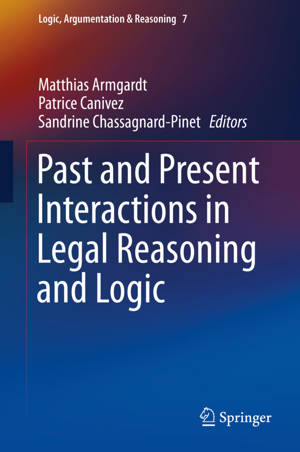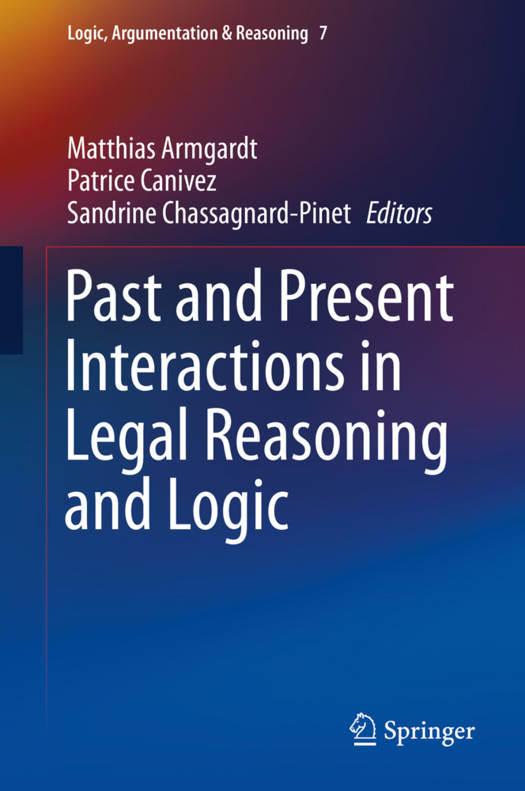
- Retrait gratuit dans votre magasin Club
- 7.000.000 titres dans notre catalogue
- Payer en toute sécurité
- Toujours un magasin près de chez vous
- Retrait gratuit dans votre magasin Club
- 7.000.0000 titres dans notre catalogue
- Payer en toute sécurité
- Toujours un magasin près de chez vous
Past and Present Interactions in Legal Reasoning and Logic
Description
This volume explores the relation between legal reasoning and logic from both a historical and a systematic perspective. The topics addressed include, among others, conditional legal acts, disjunctions in legal acts, presumptions and conjectures, conflicts of values, Jørgensen´s Dilemma, the Rhetor´s Dilemma, the theory of legal fictions and the categorization of contracts. The unifying problematic of these contributions concerns the conditional structures and, more particularly, the relationship between legal theory and legal reasoning in the context of conditions.
The contributions in this work constitute the first results of the ANR-DFG joint research project "JuriLog" (Jurisprudence and Logic), which aims at fostering the cooperation between legal scholars and philosophers. On the one hand, lawyers and legal scholars have an interest in emphasizing the logical character of legal reasoning. In this respect, the present enquiry examines the question of how logic, especially newer forms of dialogical logic, can be made fruitful as a significant area of philosophy for jurisprudence and legal practice. On the other hand, logicians find in legal reasoning a striving towards clear definitions and inference-procedures that is relevant to their discipline. In order to fully understand such reciprocal relationships, it is necessary to bridge the gap between law, logic and philosophy in contemporary academic research. The essays collected in this volume all work towards this common goal.
The book is divided in three sections. In the first part, the strong relation between Roman Law and logic is explored with respect to the analysis of disjunctive statements in legal acts. The second part focuses on Leibniz´s legal theory. The third part, finally, is dedicated to current interactions between law and logic.
Spécifications
Parties prenantes
- Editeur:
Contenu
- Nombre de pages :
- 270
- Langue:
- Anglais
- Collection :
- Tome:
- n° 7
Caractéristiques
- EAN:
- 9783319160207
- Date de parution :
- 02-06-15
- Format:
- Livre relié
- Format numérique:
- Genaaid
- Dimensions :
- 156 mm x 234 mm
- Poids :
- 576 g

Les avis
Nous publions uniquement les avis qui respectent les conditions requises. Consultez nos conditions pour les avis.





